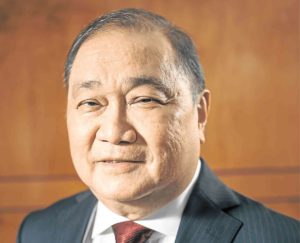President Duterte has signed a law granting a 25-year renewable energy distribution franchise to a solar energy firm owned by the son of former senator and Antique Rep. Loren Legarda.
The President signed Republic Act 11357 giving the franchise to Solar Para sa Bayan Corp. (SPSB), allowing it to serve remote, unviable and underserserved areas in some provinces.
The law was signed by Mr. Duterte on July 31.
The firm is owned by Leandro Leviste, son of the former senator and incumbent Antique representative.
The SPSB describes itself on its website as a “Filipino social enterprise which aims to serve Filipino communities with cheap, clean, reliable 24/7 electricity.”
The law allows the SPSB to construct, install, establish, operate, and maintain distributed energy resources and minigrid systems in underserved areas.
These include areas in Aklan, Aurora, Bohol, Cagayan, Camiguin, Capiz, Compostela Valley, Davao Oriental, Guimaras, Isabela, Masbate, Misamis Occidental, Occidental Mindoro, Oriental Mindoro, Palawan, Batangas, and Quezon.
The Department of Energy (DOE) will determine which areas are considered remote, unviable, unserved and underserved to be serviced by the firm.
SPSB is required to operate distributed energy resources or microgids at the least possible cost, and provide efficient and reliable service and reduced electricity costs.
The retail rate will be regulated and approved by the Energy Regulatory Commission (ERC), and will reflect the true cost. There will be no government subsidy.
The franchise does not affect the DOE’s duty to promote private sector participation in the electrification of remote and unviable, unserved and underserved areas.
Meanwhile, the SPSB will be required to submit an annual report to the DOE, ERC and Congress on its compliance with the terms and conditions of the franchise.
It may be recalled that the Developers of Renewable Energy for Advancement, an alliance of renewable energy developers, asked the President to veto the measure granting the franchise to SPSB.
The group claimed that the measure violated the guarantee of due process and equal protection in the Constitution and encouraged anticompetitive practices, only benefiting the said firm.


